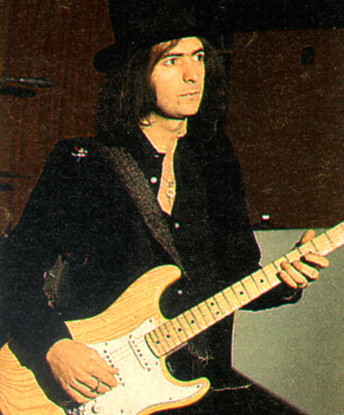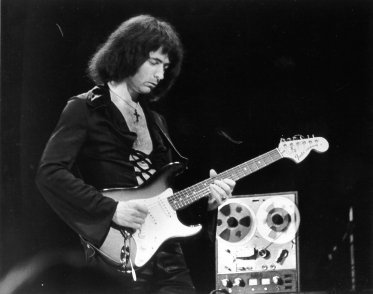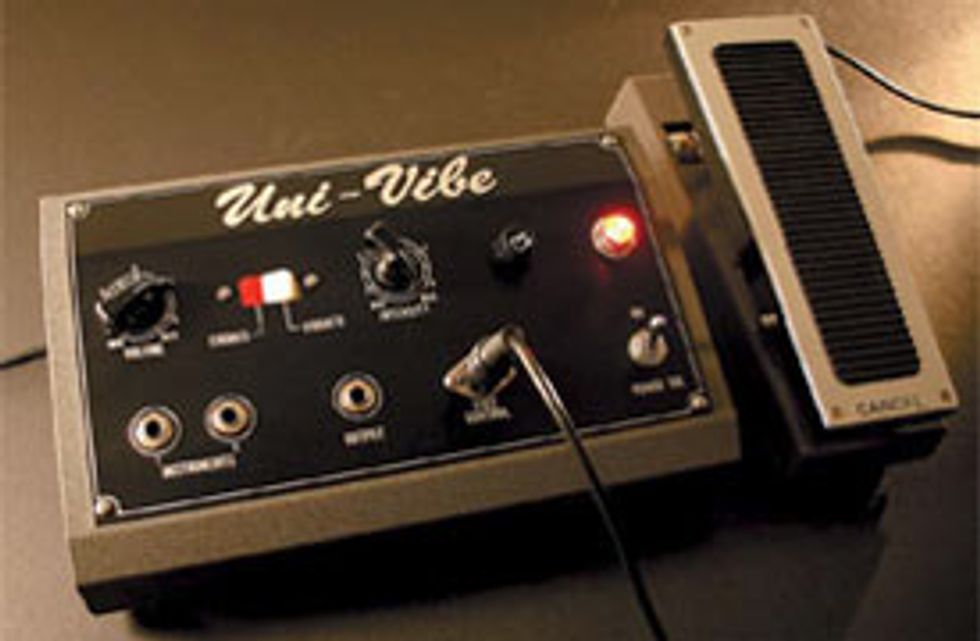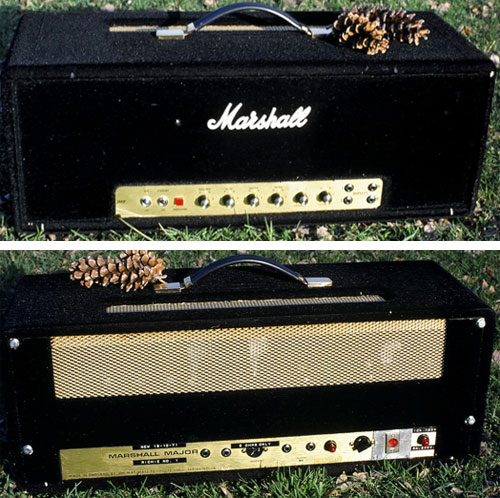Well,It's been a long time i barely post anything..
And for "Album Minggu Ini" or Albums of The Week,will be changed to some song suggestions,since i'm quite busy,and also lazy nowadays.Besides,it's really hard to listen 5 albums in a row only in one week! It means that i listen to about 50 different songs and try to memorize it!
As all of you know,my favorite guitarist is Ritchie Blackmore.But kids nowadays didn't know anything about him.Even many of people know him only for "Smoke On The Water",or only know "Smoke On The Water",but didn't have any idea who the fuck is Ritchie Blackmore! (True story,some of my friends,who also musicians,only know the songs from The Guitar Hero game)
Today,i'll post something about Ritchie Blackmore,why?
Of Course,today is Blackmore's birthday!
Happy Birthday,Ritchie!
Of Course,today is Blackmore's birthday!
Happy Birthday,Ritchie!
This time,i'll (attempt) to share about the legendary guitarist' guitars and other rigs,obviously his Deep Purple and Rainbow era rigs (I don't have any idea about his Blackmore's Night rig,apart from his signature strat).
Speaking about EFX,Blackmore is one simplistic guy,just like most rock guitarist of 70's,and they didn't do any major modifications with their pedalboard (didn't use compressors,distortion pedals,or any other complicated shit).Even many of guitarists of that time simply plug and play to their amp,but it's awesome!
BUT,It doesn't mean all guitarist of 70's sound the same,you know that in 70's there are tons of unique guitarists with their own unique tone,phrasing,and genres.Blackmore are one of them,and even considered as one of the guitarist that successfully achieved one distinctive,warm,and best tone on Stratocaster ever!
Ritchie's tone isn't muddled by Distortion or Overdrive,but it's a boosted amp boosted with a treble booster! (Hornby Skewes Treble Booster).As preamp,he used an old,vintage tape recorder as an echo and to warm his tone.As any other effects,he used many various things,an octave,phase shifter,even a keyboard bass pedals!
Ritchie's tone isn't muddled by Distortion or Overdrive,but it's a boosted amp boosted with a treble booster! (Hornby Skewes Treble Booster).As preamp,he used an old,vintage tape recorder as an echo and to warm his tone.As any other effects,he used many various things,an octave,phase shifter,even a keyboard bass pedals!
But rather than the effects,we'll discuss the most important part of Blackmore's guitar tone,obviously,the guitar itself! (I know he had LOTS of guitars and has destroyed hundreds of strat copies,but i'll share only about his important and main live guitars)
I. Guitar :
Ritchie Blackmore used Gibson ES-335 in his earlier years,But he's known as a strat guy,he also discovered his trademark and signature sound through this guitar.He's also the first player that scalloped his guitar frets since he prefer fast-playing with light touch.For those who didn't know what is scalloped frets,here it is :
 Scalloped frets provides lighter touch,who gives advantage in bending and fast playing.There are many other guitarist used scalloped frets,such as Jeff Loomis,Herman Li,Steve Vai,and of course,Yngwie Malmsteen
Scalloped frets provides lighter touch,who gives advantage in bending and fast playing.There are many other guitarist used scalloped frets,such as Jeff Loomis,Herman Li,Steve Vai,and of course,Yngwie Malmsteen1 Gibson ES-335
Where is it now : In the hand of Ilsan Akbil,a vintage guitar collector,which bought it from Laurence Wexer that got the guitar from vintage guitar auction.The guitar was stolen from Blackmore back then in 1970s by Barbel Hardie,Blackmore's ex-wife.This guitar was used in all of his session works as a teenager in England,and also first 5 Deep Purple albums (Shades of Deep Purple,Books of Taliesyn,Deep Purple,he used both this guitar and strat in "In Rock" and "Fireball").
Ritchie also said that it's easier to play fast here than in strat,since the Gibson had thinner neck.But he prefer Fender's tone and sustain after hearing Jimi Hendrix and got a Tele-necked strat from Eric Clapton's roadie (I got no info about that strat,however).
Young Ritchie Blackmore (around 18) with his Gibson ES-335
Where is it now : Unknown,presumably destroyed in one of late MK-II show back then in 1970s
This strat is known as his first strat he used in Deep Purple.It's a black colored Fender 70's Stratocaster that become his main live guitar during his MK-II days,where he used this guitar in almost all MK-II performance (And this guitar is maybe the one that was used in "Made in Japan" live album).This stratocaster primarily is a stock,old vintage stratocaster,which had stock pickups and hardware,except for the whammy bar.And of course,he didn't scalloped this guitar yet.The whammy bar used in this guitar was custom-made bar that thicker and a little different from Fender's whammy bars.The reason he used this whammy bar,is,because he often broke his bridge,thanks to his aggresive playing.
 Ritchie with his Black Strat
Ritchie with his Black Strat3.Stratocaster II : Sunburst,White Pickguard,Maple fretboard
Where is it now : Unknown,never seen again after the first MK-II broke-up
This stratocaster was the other staple guitar of Ritchie in his MK-II,and he often used this guitar in his last MK-II Days (You can see this guitar in their 1973 New York gig on YouTube).It's also a stock,unmodified stratocaster.
4.Scalloped Stratocaster I : Natural.pickguard ,fretboard maple
Where is it now : Unknown,Only seen in MK-III days.
The first strat that Blackmore ever scalloped,Blackmore said he scalloped this guitar himself.Blackmore started using this legendary instrument in late 1973,or after Deep Purple MK-III was formed.This stratocaster appeared in legendary California Jam 1974 Performance,the infamous performance which Blackmore was angry at ABC TV Manager,broke a camera,destroys a strat copy and amps,then ran away with a helicopter.It seems he used a stock pickups in this one as well,although rumours said Dawk Stillwell,his guitar tech,modifier the pickups.
Where is it now : Unknown,Only seen in MK-III days.
The first strat that Blackmore ever scalloped,Blackmore said he scalloped this guitar himself.Blackmore started using this legendary instrument in late 1973,or after Deep Purple MK-III was formed.This stratocaster appeared in legendary California Jam 1974 Performance,the infamous performance which Blackmore was angry at ABC TV Manager,broke a camera,destroys a strat copy and amps,then ran away with a helicopter.It seems he used a stock pickups in this one as well,although rumours said Dawk Stillwell,his guitar tech,modifier the pickups.

Ritchie with his Mk-III strat,that become part of legendary California Jam performance
Where is it now : Unknown,whether destroyed or keep as collection by the man himself
This strat looks quite identical as his sunburst strat from his earlier days,but it's not! It's scalloped and Ritchie started to prefer Rosewood fretboards opposed to Maple he earlier used,which gives a warmer tone instead of the crunchy one.It's also scalloped by Ritchie himself,from what i read.The pickups and hardware remains unmodified,but started with this guitar,Ritchie put a strap lock in guitar headstock in order to merely annoy and confuse people (He also add this strap lock to his later guitars).You can see this strat in Ritchie Blackmore's Rainbow Live in Munich 1977 performance

Ritchie's first stratocaster with Rainbow,along with his tape echo
Where is it now : Unknown,whether destroyed or keep as collection by the man himself
This strat is a proto-type to his later guitars.He started used this strat from 1977 until Down To Earth era.
Besides scalloped his rosewood fretboards,Ritchie also start to experiment with many pickups, from
DiMarzio HS-2,Schecter F-500 TS,Velvet Hammer "Red Rhodes",OBL Black Label,Bill Lawrence Pickups,until he settled with his Seymour Duncan Quarter Pound Flat SSL-4.This is also the first of his strats that used dummy pickups in the middle,make this guitar is a 3-way pickup switch rather than usual 5-way switch strats.
 The black pickguard strat,i wonder where the hell it is now?
The black pickguard strat,i wonder where the hell it is now?Where is it now : Still alive and well,in Ritchie's ownership
Ritchie Blackmore main strat,this is the guitar that used by Blackmore until now (occassionally),and become the print of his signature that sold by Fender Mexico.This guitar had a significant difference with other scalloped guitar,had a gradually scalloped rather than the fully scalloped one.
Ritchie started play this guitar in 1980,in his Rainbow days and also his Deep Purple reunion days.And just like the Scalloped Strat III,it has a dummy middle pickup,2 Seymour Duncan Quarter Pound Flat SSL-4 pickups,3 way switch,and also black-colored volume and switch knobs.

Ritchie Blackmore with his signature stratocaster
Where is it now : Still alive and well,in Ritchie's ownership
Another Blackmore's main guitar,that featured vintage white finish rather his standard olympic white.It's practically the same guitar as his Ritchie Blackmore Strat,but he changed the pickups with Lace Sensors,and change the knobs to white.This guitar can be seen in 1990's Deep Purple and Rainbow reunion days,and also Blackmore's Night performance.It's also his current main recording and live guitars,besides his acoustic ones.This guitar become Fender Japan's Blackmore signature blueprint.

Ritchie and his vintage-white signature strat
And if you want a guitar with Blackmore's tone,i got some cheap and easy (though inaccurate,it can be sink or swim,depended on your guitar) tricks to get "Blackmore'd" :
Use an S/S/S configuration is a must.Though Ritchie played hard rock and heavy metal,he didn't modified his guitar like many other guitarists.He preferred the warm sound of single coil strats rather than humbucker guitars like SG,Les Paul or Superstrats manufactured by Kramer,Ibanez,Jackson,or ESP.
This S/S/S configuration can be quite inversatile to play other kind of music like,say extreme metal,but if you play hard rock,or heavy metal,especially Rainbow or Deep Purple stuff,it will be really great.You can also change the pickup or not,it's your choice which Blackmore's tone you like,his 70's or later tone.If you want his 70's tone,just stick to Fender stock pickups (the vintage one will be better),but if you prefer the 80's and his current tone,find some noiseless,hum-cancelling and of course hi-output pickups such as DiMarzio HS-4,DiMarzio HS-3,or maybe his Seymour Duncan Quarter Pound pickups.You may also unwired your middle pickup and create a dummy one.
Pickup-wise (i don't know if it's the right word,but i don't know any words to refer this),Ritchie NEVER used his middle pickups,which became his obvious reason to unwire his middle pickups.But be careful if you want to unwire your middle pickups.It will change your tone to be more closer to humbucker-guitars and of course makes the Fender main signature,the middle pickup tone,dissapear.Ritchie never used that kind of tone,unlike other players such Jimi Hendrix,Eric Clapton,Stevie Ray Vaughan,Jeff Beck,John Frusciante,or even modern player like John Mayer.His modification makes Ritchie sounds unique and in-between other players tone.He got heavier and warmer tone than other strat or blues players,but also more delicate than other heavy metal,and obviously extreme and glam metal guitarists.
And the most easy and obvious way to get his tone,is,of course,buy his signature guitar!
I have tried this guitar once,in a shop in Mall Kelapa Gading (i forgot their name,but it's on the corner).And in my opinion,this guitar is much more adaptable rather than Yngwie's strat,which features fully scalloped fretboards.But the cons of this guitar,is lack of middle pickup,like i say before.So for you,funk guitarists,or fender middle pickup lovers,this guitar is ABSOLUTELY NOT for you.But overall,this guitar is awesome,and it's cheaper than most of artists signature.It's cost around Rp 9.000.000.
II. Amplifier
There are 3 known amplifier that shaped Ritchie's tone.The first one is the legendary Vox AC-30 amplifier,which is Blackmore's personal recording amp.Then the infamous,yet loud Marshall Major that modified from 200 Watts to 278 Watts,cranked up to full(To make all of us deaf,lol),this amp is his signature live amplifier and used by him until early 90s Deep Purple days.And the last is ENGL Blackmore,one of two signatures that ENGL made,coincidently the other signature is Steve Morse signature (Steve Morse is Purple's current guitarist).And from i read and heard,people said this amp is more versatile than Marshall Major.As you know,ENGL is known for making finest high-gain amps.And this amp is no exception,you can use this amp for playing thrash or death metal!
There are 3 known amplifier that shaped Ritchie's tone.The first one is the legendary Vox AC-30 amplifier,which is Blackmore's personal recording amp.Then the infamous,yet loud Marshall Major that modified from 200 Watts to 278 Watts,cranked up to full(To make all of us deaf,lol),this amp is his signature live amplifier and used by him until early 90s Deep Purple days.And the last is ENGL Blackmore,one of two signatures that ENGL made,coincidently the other signature is Steve Morse signature (Steve Morse is Purple's current guitarist).And from i read and heard,people said this amp is more versatile than Marshall Major.As you know,ENGL is known for making finest high-gain amps.And this amp is no exception,you can use this amp for playing thrash or death metal!
For his amp settings,this is my own version of his,but make sure you customizes it yourself and don't let the tone distorted too much,it will NEVER sounded like Blackmore if you played with overachieved gain!
Bass : 2-3,you don't need much bass for this.
Middle : Full or almost full,8 to 10,this is the main reason of his rich and fuller sound
Treble : Slightest than the middle,around 6 or 7.
Gain : Depends,but don't crank too much if you used a high-gain and modern sounding amp.
Volume : FULL! Just like the man in black say himself :
"I've always every amp i've ever had fulled up,because rock and roll is supposed to be played loud!"
Vox AC-30
Modified Marshall Major,mod by Dawk Stillwell,dubbed "loudest amp in the world"
III. EFX and Accessories
As i stated above,Blackmore didn't use any distortion.His overdriven tone came from his loud Marshall Major Amplifier,boosted by Treble Booster made by Hornby Skewes,with Aiwa Tape Delay as his pre-amp.He sometimes used phase shifters for ballads.For other effects,they said he uses a Fuzzface and Unicord Univibe (Though i never heard both of them in Ritchie's playing),an octave divider,occasional wahs,and also Moog Taurus.These are his known effects :
As i stated above,Blackmore didn't use any distortion.His overdriven tone came from his loud Marshall Major Amplifier,boosted by Treble Booster made by Hornby Skewes,with Aiwa Tape Delay as his pre-amp.He sometimes used phase shifters for ballads.For other effects,they said he uses a Fuzzface and Unicord Univibe (Though i never heard both of them in Ritchie's playing),an octave divider,occasional wahs,and also Moog Taurus.These are his known effects :
1.Hornby Skewes Treble Booster
Treble booster is staple for many 70's rock guitarists,including Ritchie Blackmore.He used this booster primarily to add sustain,since he didn't really need any boosting,thanks to his earsplitting Marshall Major.
It may be sounds like an overdrive pedal if you never try one before,but it's actually quite different,a booster didn't really add clippings to your tone,unlike overdrive (soft-clipping),or distortion (hard-clipping).The result is,the overdriven,yet clear guitar tone.Where did you can hear this tone? Every Ritchie's Deep Purple and Rainbow songs,of course!
As the name suggest,this is an octave effect. What this effect does is adds additional lower octave to your guitar tone,and it sounds like some synth or bass octave tone.It makes your guitar sounds layered.
You can hear Ritchie play this effect in "Difficult To Cure" in Tokyo 1984 video.
You can hear Ritchie play this effect in "Difficult To Cure" in Tokyo 1984 video.
3.Moog Taurus Pedal

Actually,this pedal is NOT a guitar effects.It's more like a mini-synth,but only provides bass notes.It can be heard in "Gates of Babylon" intro or "Difficult To Cure" live performance
What does i need to explain? It's a phase shifter,or you called,phaser!
It creates swirling sounds like rotary speaker for music instruments.
Ritchie Blackmore used this songs for ballad and live performance,notably "Catch The Rainbow",and "Rainbow Eyes".I didn't know much about this effect aside from it's German made,since it's not produced anymore and i didn't live in Germany!
It creates swirling sounds like rotary speaker for music instruments.
Ritchie Blackmore used this songs for ballad and live performance,notably "Catch The Rainbow",and "Rainbow Eyes".I didn't know much about this effect aside from it's German made,since it's not produced anymore and i didn't live in Germany!
5.Aiwa TP 1011
Yeah,you reading it right,Ritchie used this tape-recorder as a guitar effect! I don't know how he mod it,but you can found the tutorial videos in YouTube.Ritchie used this effect since the "Burn" era of Deep Purple.Ritchie prefer to use this than a conventional echo machine because he said that echo machine make guitar sounds shrill and thin.This tape recorder does it conversely,Ritchie said it's warmed up his tone and doesn't affect his tone in a bad way.He also liked the warm-analog delay from the machine.
Here is his picture with the tape delay machine :
Here is his picture with the tape delay machine :

"I just thought it was a normal tape deck, but now it’s become this little soul on the side of the stage. It’s like my little friend."
6. Vox V845 Classic Wah
This one is really difficult to find out,since Blackmore isn't a big fan of wah!
But i found out about his wah anyway,it's this wah that Blackmore occassionally used,though he didn't abuse the wah the way Slash,Kirk Hammett,or Zakk Wylde do.He only stepped on it occassionaly or to boost some of his leads. It's heard in "Black Night" studio recording,"Hunting Humans" from Rainbow's Stranger in Us All album and also "Sail Away" off Burn album.
7.Dallas Arbiter Fuzz Face & Unicord Univibe
The other staple effects for 60's and 70's rock guitarist,besides the treble booster.It gives a muddy,overdriven amp that creates lots of sustains.It's popularized by Jimi Hendrix and Eric Clapton back in the day.Unfortunately,i don't have any idea what's this effect had to do with Blackmore's sound. I guess he just own it,not use it,though some site said he used this effect.


Unicord Univibe is a leslie speaker simulator,or much more like a "vintage style" phaser.It gives swirling psychedelic effects loved by acid rock guitarists,and also nice for ballads as well.But from what i know,Ritchie Blackmore didn't use this effect for phasing,but rather the Schulte phaser i mentioned before.
For Blackmore fanatics out there,i suggest you to NOT copy exact gear of him,since all of them are vintage effects that will costs you millions,wastes your time,and also it's not cool to copy your hero's tone completely.But if you want some of them,and searching for the cheaper,yet nice replacement,i got some suggestion :
* For The Hornby Skewes Treble Booster : This thing is VERY RARE to see nowadays,and it's not mass-produced,so i suggest you to find anything else.BSM HSS Treble Booster is a wise choice,since it's a true by-pass booster,and also based on this particular booster.
*For Mu-Tron Octave Divider : Find anything else as well,i don't even know who own this effect and sell it nowadays.Boss OC-2 (you can true bypass it if you're a true bypass purist),or Electro Harmonix POG pedals are a good alternative
*For Moog Taurus : There are shops who sell it,but not too many in Indonesia.But i thought it's not really important,anyway.And the shops who sell it usually sell the new ones,not the vintage one that Blackmore used.
*For Schulte Compact Phasing A : Just bought a simple vintage phaser than this one,as you'll (once again) desperately waste your time searching for it.A vintage or new Electro Harmonix Small Stone will do good,but if you want to have a REALLY perfect phaser,try to get Moog Phaser or Red Witch one,but it will cost you a LOT of money just for a phaser.
*For Aiwa TP 1011 : You aren't going to found an old tape and mod it yourself,don't you? Well,you can do that,but make sure to find out how to do it CORRECTLY first before try it,and don't blame me for any mistakes you did to that tape,because from what i know,vintage tapes are very pricey,and it's really difficult to fix them if you broke it.So i suggest you to looking for a conventional delay pedal,such as a budget one like Biyang AD-8 Analog Delay (which i use),the decent one like MxR Carbon Copy,Electro Harmonix Memory Man,or Way Huge Aqua Puss,or maybe the pricey one like Fulltone Tape Echo if you live in USA (he only take the tape delay order for U.S buyer)
*For Vox V845 Wah : Since Blackmore isn't really a wah user,i thought wah isn't an essential if you want to cope Blackmore's tone.But I have some suggestions for a good wah! You can check out Jim Dunlop Crybaby Classic Wah,which featured Fasel Inductor like vintage wahs had (i used it too,and it sounds just awesome),it's true bypass as well.Jim Dunlop Jerry Cantrell's Wah are a good choice,as well as Vox Wahs.But i thought the best wahs i ever try and heard are Fulltone Clyde Deluxe Wah.
*For The Fuzz Face and Univibe : Well,buying those doesn't have anything to do to get Blackmore's tone,but i got some nice suggestions as well,for Fuzzface,get the Dallas Arbiter! But if you had hard time for it,Jim Dunlop provides it as well,in form of Dunlop Fuzz Face and MxR Classic Fuzz.Electro Harmonix have the famous Big-Muff as well. As for Univibe,i suggest to buy Fulltone Dejavibe instead of Dunlop registered Univibe,because the Dejavibe had the chips that used in the original vintage Univibe,whilst the Dunlop ones,ironically since they bought the trademark,don't have it!
As for pick,Ritchie didn't use standard-shaped pick,but a rectangular one like these,only in tortoise shell,not plastic :
,Happy Birthday Ritchie,Long live and prosper,Long Live Rock & Roll! \m/












